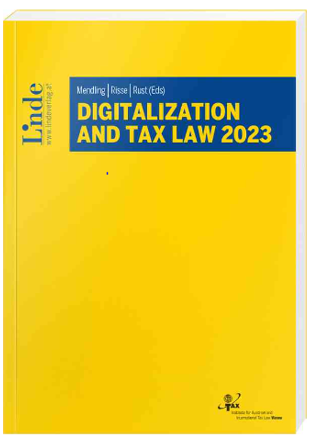What makes coaching so magnetic, and why are people flocking to it faster than they do to the latest viral dance trend? Let’s dive into the logic (and sprinkle in a bit of humor) behind coaching’s growing appeal.
New Year’s Resolution - Strategic Roadmap to Steer the Tax Function
In the ever-evolving landscape of corporate governance, the tax function plays a pivotal role in ensuring compliance, optimizing financial performance, and supporting strategic business decisions. Developing a strategic roadmap for the tax function involves a comprehensive approach that integrates various elements and stakeholders within an organization.
The Symbiotic Relationship Between Leaders and Culture
In the intricate dance of organizational dynamics, the question of whether leaders shape culture or are shaped by it has long been a subject of debate. This relationship is not merely a one-way street but a complex interplay where both elements influence and mold each other.
Maturity Models for the Tax Function
Corporate tax functions need constantly ensure tax compliance and grow in their maturity as technology evolves.
Tax Function Excellence and Artificial Intelligence Models
The transformative potential of artificial intelligence (AI) within the tax function has become undeniable. From processing thousands of transactions with near-perfect accuracy in seconds to facilitating strategic decision-making, AI is reshaping the way tax professionals operate.
Tax Functional Excellence – Tax Planning and Tax Management
In the realm of corporate finance, tax planning and tax management are essential components of a globally efficient tax function. Both components complement one another and draw on interconnected data sources, though they serve distinct roles within a business’s overall tax strategy.
The Role of the Global Tax Process Owner
In today’s complex and interconnected business landscape, the role of the Global Tax Process Owner (GPO) has become essential, especially in large multinational corporations. While companies of all sizes and industries can benefit from tax process oversight, global tax process ownership is particularly valuable in organizations that operate across numerous geographical locations and business units.
Tiering System and Corporate Function Operating Model
Let’s begin by looking at lenses we can use from market and business complexity categories to analyse the data, define the tiering system and drive insights into the targeted operating and sourcing model.
Project-Based Operations: A Cornerstone of Global Business Services
In the evolving landscape of Global Business Services (GBS), a significant paradigm shift is evident as these organizations increasingly adopt project-based or project-oriented operational models.
Steering Transformation Programmes: Techniques for Effective Leadership
Transformation programmes are complex, multifaceted initiatives that require careful planning, strategic vision, and adaptability. Leading such programmes involves making critical decisions that can significantly impact the success of the transformation. In this article, we propose a few scientifically grounded techniques for making better choices when steering transformation programmes: 1) zoom in and zoom out 2) seek an outside frame of reference 3) reframe the situation and 4) be ready to pivot.
Scorecard – A Strategic Map to Steer Global Business Services
How should leaders within Global Business Services (GBS) navigate the strategic evolution of their organizations? The implementation of a scorecard as a strategic framework provides a comprehensive approach to steer the GBS organization. This framework elucidates the governance structure of the GBS organization, assesses the performance of process owners, and clarifies the prioritization of objectives.
Global Business Services Partnering Operating Model
For over two decades, organizations globally have leveraged shared services to optimize processes, enhance controls, and reduce costs. While these benefits remain relevant, the expectations for leading Global Business Services (GBS) organizations have significantly increased. Mature GBS organizations now provide strategic value in specialized areas such as tax compliance, statutory reporting, project controlling, and credit management; alongside strategic initiatives in project-based operations, change management, and innovation, beyond traditional cost and operational efficiency gains. Consequently, key stakeholders and business partners perceive GBS as a strategic ally rather than merely a transactional processing center. With the maturation of GBS, the Partnering Operating Model is becoming increasingly strategic.
Building up the Global Business Services Center of Expertise
Global Business Services (GBS) significantly influence operational models and process sourcing across corporate functions. By establishing Centers of Expertise (CoE) and collaborating with global business process outsourcing (BPO) organizations, GBS creates substantial strategic value, fostering efficiency, innovation and digitalization of business processes.
Global Business Services Value Proposition: Governing Business Process Outsourcing Relationships
Business Process Outsourcing (BPO) has become a strategic tool for organizations seeking to enhance operational efficiency, reduce costs, and focus on core competencies. However, the success of BPO sourcing model largely depends on effective governance. The governance of BPO services is crucial for creating strategic value, ensuring process effectiveness and efficiency, and enhancing the operating model by maintaining ownership and accountability within the relevant corporate functions.
Continuous Development
In recent years, the topic of change has gained significant traction in both academic and empirical fields. Rapid evolution in business and social environments compels companies, societies, and individuals to continuously adapt and innovate. This necessity for constant development has made change a recognized norm across all industries and markets, transforming continuous change management into a critical component of organizational ecosystems.
Understanding the Global Business Services’ Iron Triangle
The nature of the Global Business Services (GBS) function can be better understood by addressing a fundamental question that has gained prominence due to recent digital advancements:
What do we really want to achieve?
The Role of the Tax Function: WHY, WHAT, and HOW
The tax function is crucial to an organization, influencing various aspects from effective business modelling to corporate image, compliance, and internal control. It also plays a significant role in change management programmes and the digital agenda of organization. Here is WHY the tax function matters.
Design Thinking in Developing Tax Function Operating Model
Tax legislation exerts a significant influence on businesses and nations globally. The tax compliance environment is increasingly complex, characterized by a multifaceted system with numerous layers, touchpoints, and interfaces. This complexity presents various practical and theoretical challenges in righting companies through the tax compliance systems. To address these challenges and manage the ever-growing intricacies of tax legal requirements, tax leaders must adopt innovative approaches in designing the tax function operating models.
Friendship
“Yes, you did it Emma!”
Eva shouts to her best friend Emma with an excited voice. Eva and Emma had been best friends since the second grade…
Is Meditation Necessary for Business People?
Many of us think that prayer and meditation are for religious people, not for those who operate in a market place, people who day and night deal with business practices.



















